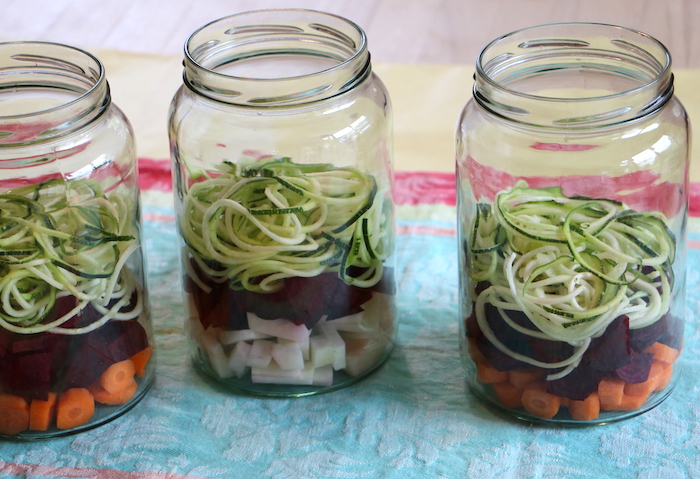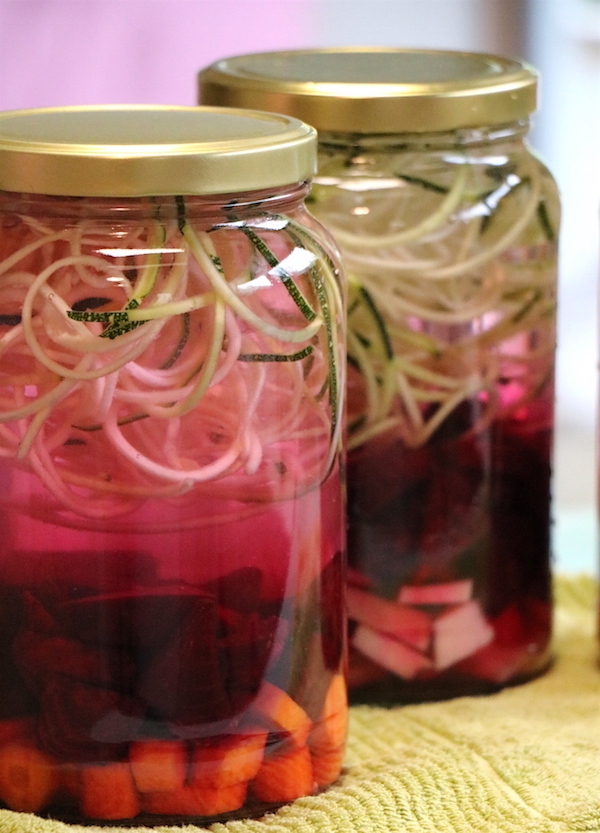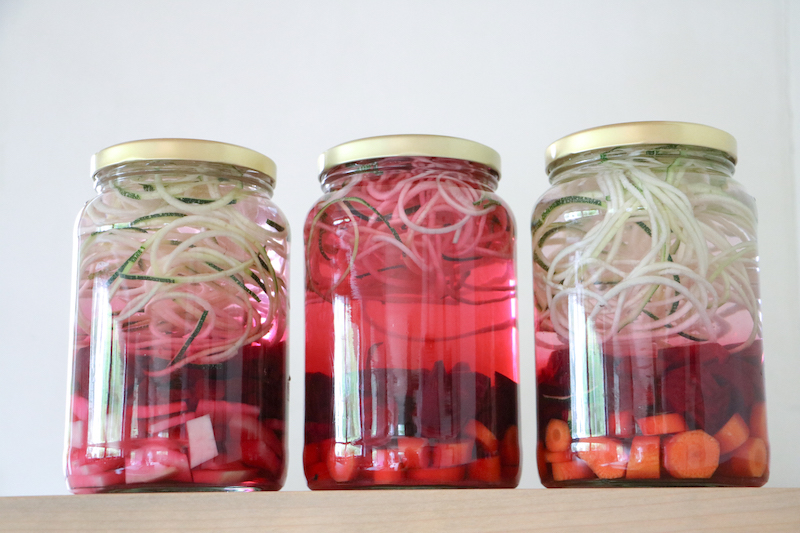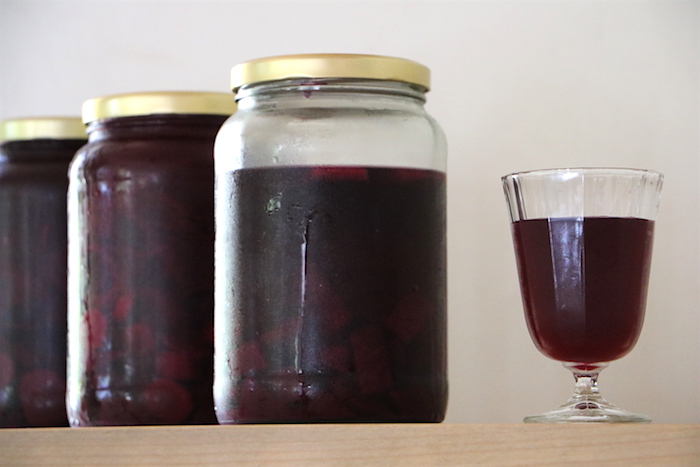Fermented juices are an essential element of Dr. Switzer’s Vital Food. As valuable donors of lactic acid bacteria, biophotons, enzymes, minerals, vitamins and countless other vital substances, they’re used in therapy as an optimal alternative in alternation with vegetable juices.
Vegetable juices today are usually too sugar-heavy due to the over-bred hybrid vegetables. In the fermentation process, a health-promoting transformation takes place in which the fructose is largely broken down.
Fermented juices:
- contain lactic acid bacteria, enzymes and an abundance of predigested nutrients
- have a regenerating effect on the intestinal flora and improve nutrient absorption
- strengthen the immune system (1)
- have a base-forming effect, thus counteracting hyperacidity and balancing the acid-base balance
- displace the harmful levorotatory lactic acid from the cells
Suitable vegetables are carrot, beet, kohlrabi and many others. It’s also interesting to include inulin-containing varieties such as Jerusalem artichoke, parsnips, parsley and salsify. Inulin belongs to the soluble dietary fibers and has a prebiotic effect, as serves as food for the good intestinal bacteria.
Note:
We prepare fermented juices without salt. Here the therapeutic purpose of the probiotic is in the foreground, too much salt would be counterproductive from a health point of view.
Fermenting without salt – does it even work?
Salt is actually not a “MUST” for the fermentation process. Vegetables also ferment simply in pure water.
It’s important that:
- If antibacterial salt is not used, special attention is paid to hygiene
- Vegetables are completely covered with water. The good lactic acid bacteria live anaerobically, the undesirable bacteria are eliminated in the absence of oxygen.
>> A spoiled ferment can be clearly recognized by a foul odor.
FERMENTED VEGETABLE JUICES
for 3 glasses each of 1.5 liters (0.4 gallons)
INGREDIENTS
- 1 pound carrot
- 1 pound beet
- 1/2 pound zucchini
- 3 liters (0.8 gallons) water
PREPARATION
- Wash carrots and beet, peel beet if necessary and cut into bite-sized pieces. Twist zucchini into spaghetti using a spiralizer.
- Divide vegetables evenly among jars.
- Pour freshly filtered water over the vegetables to the brim.
- Cover all 3 jars with a lid lightly to allow carbon dioxide and water to escape.
- Let the jars sit in a drip pan at about 20-22° Celsius (70° Fahrenheit) for 6 days.




Tip:
The fermented vegetables can then be added to salads in small pieces, used in raw breads, juiced, or simply eaten plain.
Dr. Switzer optimizes fermented juices with the addition of brown millet or quinoa sprouts. Sprouts are nutrient-rich and contain lactobacilli, which further activate the fermentation process.
Would you like to join our unique, based on nutritional sciences and practice-oriented training program for gaining a high level of health?
We are more than happy to inform you about our training program on our website!




0 Comments